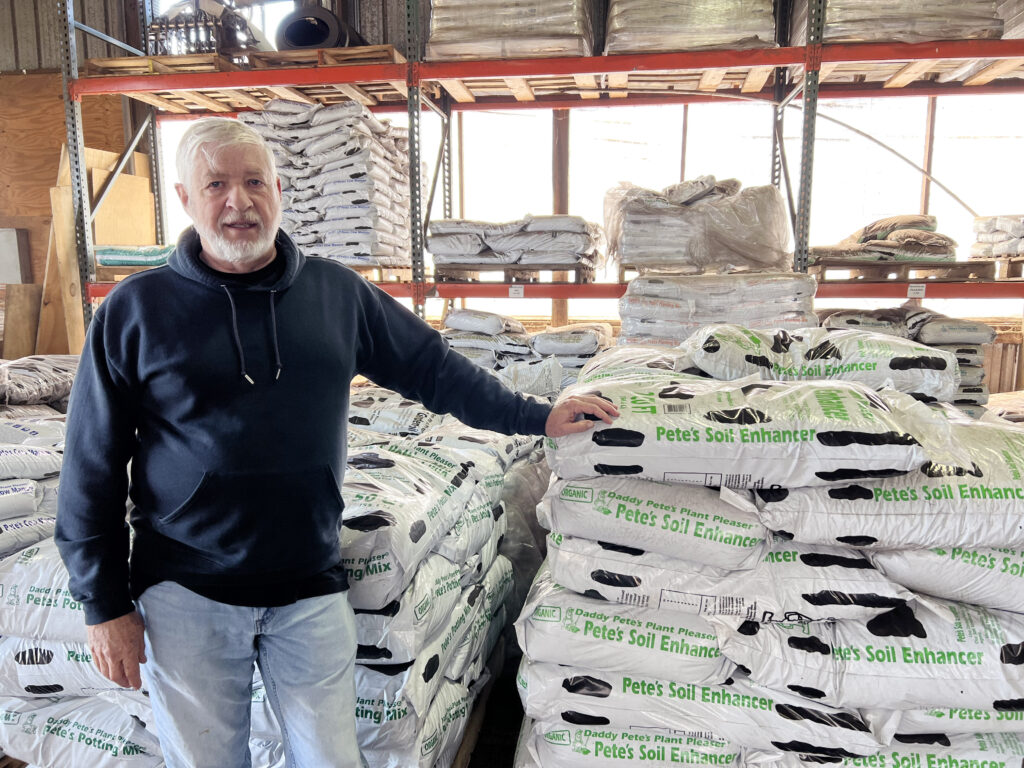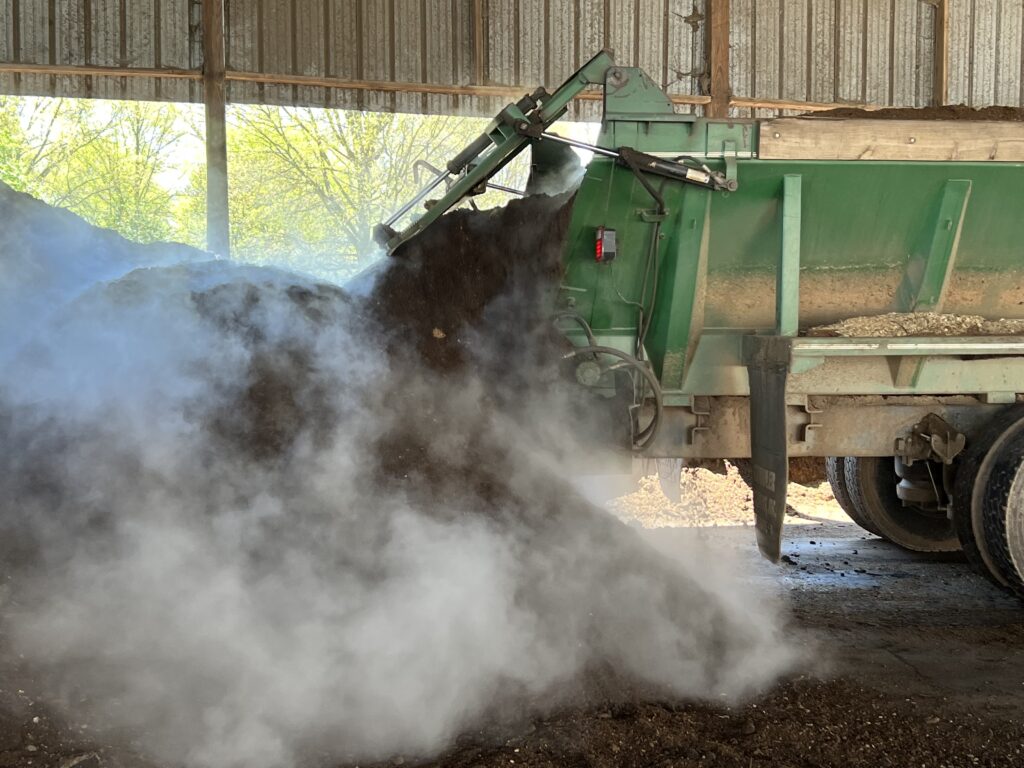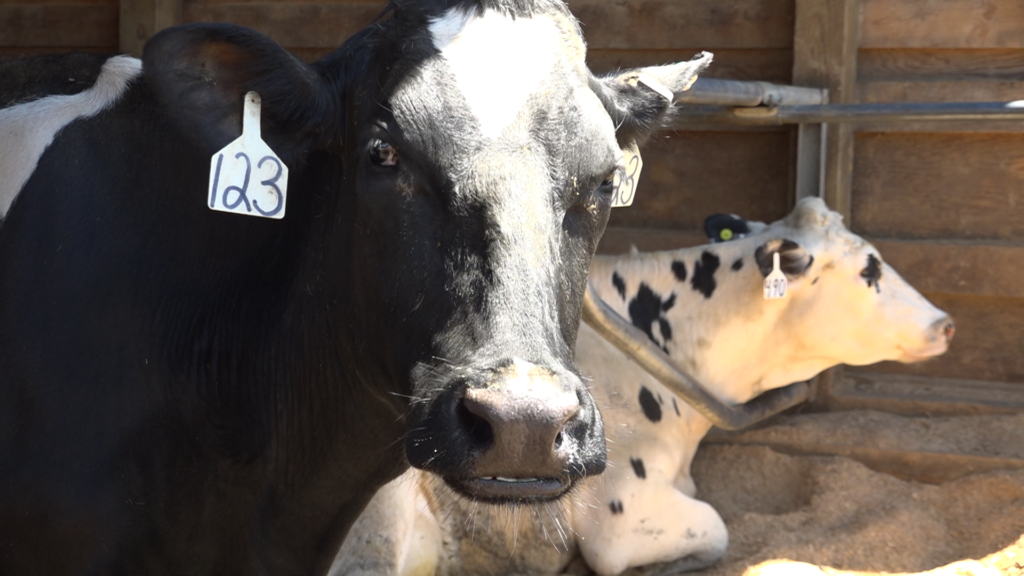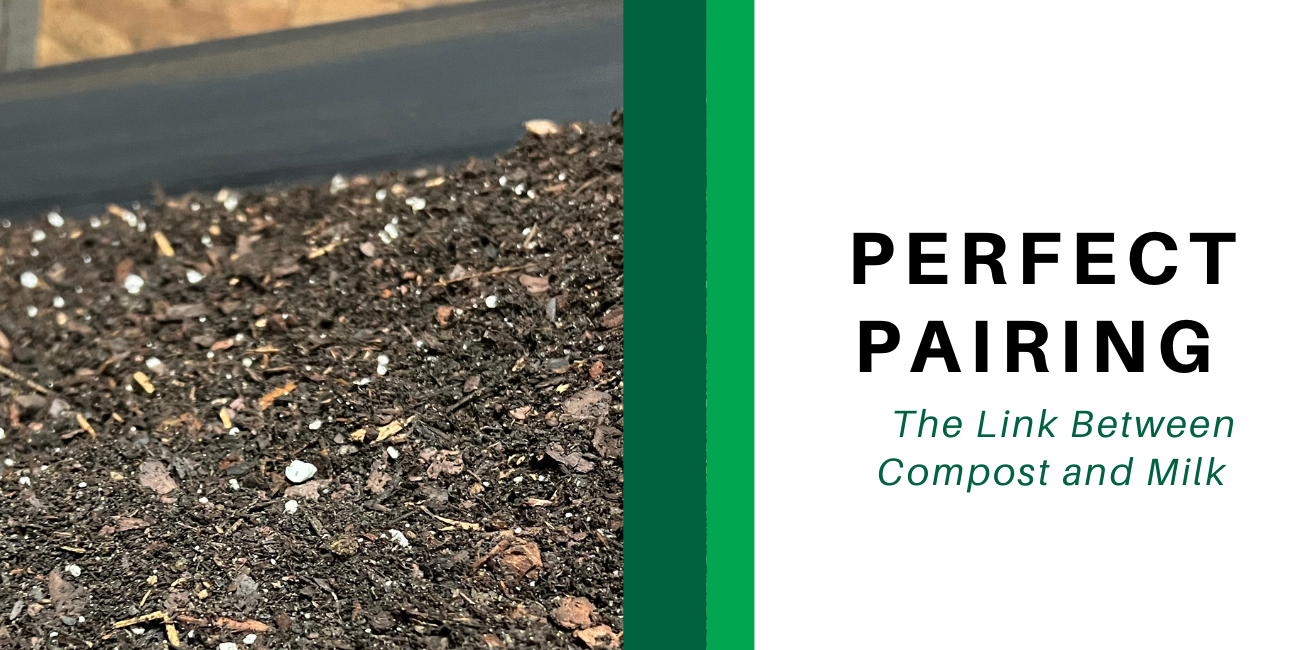Both of his products are nutritious. It’s the bodies they’re feeding that are different.
Alan Smith not only produces nutritious milk products as a Maryland & Virginia member, but he is also the entrepreneur behind a series of unique retail products made from the manure of his dairy herd.
“Our number one thing is we’re a family farm,” Smith says while standing outside his dairy in Alexander County, North Carolina. “I’m the fourth generation and my son Joe is the fifth generation.”
While the farm has been in the family for 115 years, Alan is the first dairy farmer on the property. It was after he started the dairy that he began experimenting with his herd’s manure to get more use out of the valuable product.
“I get bored pretty easily,” Smith says. “I started composting back before it was cool.” The reason Smith started composting in 1988 was to bring diversity and sustainability to the farm.
“When you compost your cow manure, it ends up being a somewhat sterile material,” Smith says. “It’s a perfect bedding.” When Smith had excess compost, he turned to another one of his passions as a potential use for the compost: gardening. The idea led him down a path that nearly 30 years later has yielded a second successful business.
Family Legacy Lives On
Since 1907, the Smith family has been farming on the more than 250 acres of land in Stony Point. Alan’s grandfather raised turkeys on the farm before Alan began the dairy in 1972. His great-grandfather was the original owner of the land and is the namesake for whom Alan named his business venture: Daddy Pete’s Plant Pleaser.

“Back in that day, all they had for fertilizer was their cow manure,” Smith says. “Daddy Pete was very conscientious about the usefulness of cow manure.”.”
Now, Daddy Pete’s Plant Pleaser is a regional powerhouse product for consumers looking for an extra oomph in their at-home gardens. It’s sold in hundreds of locations across Virginia, North Carolina, South Carolina, Tennessee, and Georgia.
Why Compost and Milk Go Hand in Hand
Smith says that having a composting business alongside his dairy makes sense, not just because the same animal is producing both products, but because a lot of what goes into making quality compost also means ensuring quality milk.
“You wouldn’t think that it would matter for manure, but you have to have as much quality in the compost as you do in the milk,” Smith says.

While his more than 15 different recipes are closely guarded secrets (“If I told you, I’d have to kill you,” he jokes), much of what feed the cows eat for high-quality milk also goes into making sure that each recipe is most effective for his compost consumers.
“All manure is not created equal,” Smith says. “We have to be selective with what we feed because it’s producing that manure.”
After the manure is produced, the solids and the water are filtered out with a separator. Then, Smith places the solids in old chicken houses for 8-10 weeks. During this period, the solids are turned regularly and heat up to around 160°. Then it’s removed from the chicken houses, cured for another 30 days and then screened before being bagged with other ingredients to make each particular recipe.
Sustainability Has Always Played a Role
Smith is adamant that it’s not his business alone that fills a sustainability role. But rather, all farms make a difference when it comes to sustainability.
“The talk out there is as if farmers don’t know how to sustain the Earth,” Smith says. “The truth is, if we didn’t, we’d go broke. We must be good stewards or we wouldn’t make a living at it.”
On top of that, there’s a higher calling for Smith to operate both of the businesses he does.
“There’s a good feeling that goes with feeding people health food and looking after God’s animals.”



